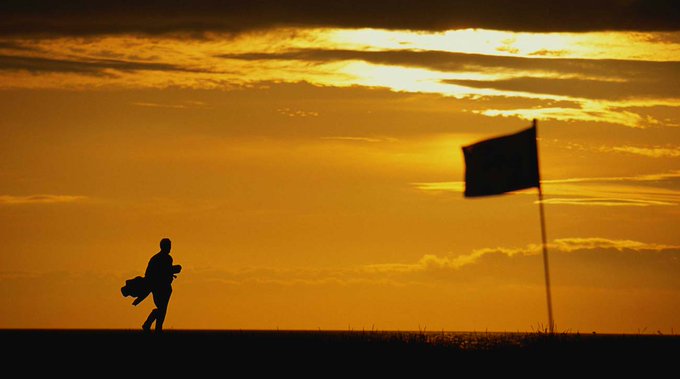ASGCA Donald Ross Award recipient Michael Bamberger has always brought his unique perspective on the golf world to an international audience of readers. In an article for Golf.com, he sheds necessary light on how the game can assist as we all adjust to a new world.
From Golf.com:
We crave order, we human beings. We’re drawn to golf because our game does orderly so well. The U.S. Open concludes on Father’s Day, the Masters on the second Sunday in April. Your Saturday-morning round starts on the first and ends on 18 and has forever. The intra-round chaos, for them and for us, presents all manner of physical and emotional challenge. But then it ends. Is it any wonder the game settles in us so deeply?
And now, for a spell here, that order is being taken from us. Screw you, COVID-19! The Masters won’t conclude on the second Sunday in April. We don’t know if the U.S. Open will end on Father’s Day. We hope it will, of course. Humans are hardwired for optimism, and golfers especially so. Optimism, tempered by realism.
If the conditions are safe, we’ll go for it. We’ll hit that 6-iron out of the woods despite the tree trunk right in front of us. We’ll board that Metro-North train at Grand Central Station in Midtown Manhattan for Mamaroneck and walk from there to Winged Foot.
The best way to invest in the stock market is to buy shares in good companies, or in baskets of good companies, and hold on to them for as long as you can, ideally forever. That’s not investing advice from a sportswriter. That’s from the first page of Warren Buffett. He’s a proven expert (which doesn’t mean he knows everything because of course he does not). He’s also a golfer and a bridge player, so that tells you something.
This is a good time to listen to experts and weigh what they’re saying. Proven experts. Fred Ridley, the chairman of Augusta National, in announcing the club’s sober decision to postpone the 2020 Masters, cited proven experts. These sentences from his Friday morning statement show the clearest of thinking:
“We will continue to work with the World Health Organization, Centers for Disease Control and Prevention, the Office of the Governor, the Georgia Department of Public Health, the City of Augusta and all other local authorities. We are grateful to all of these entities for their exceptional efforts and guidance.”
The complete article can be found here.

